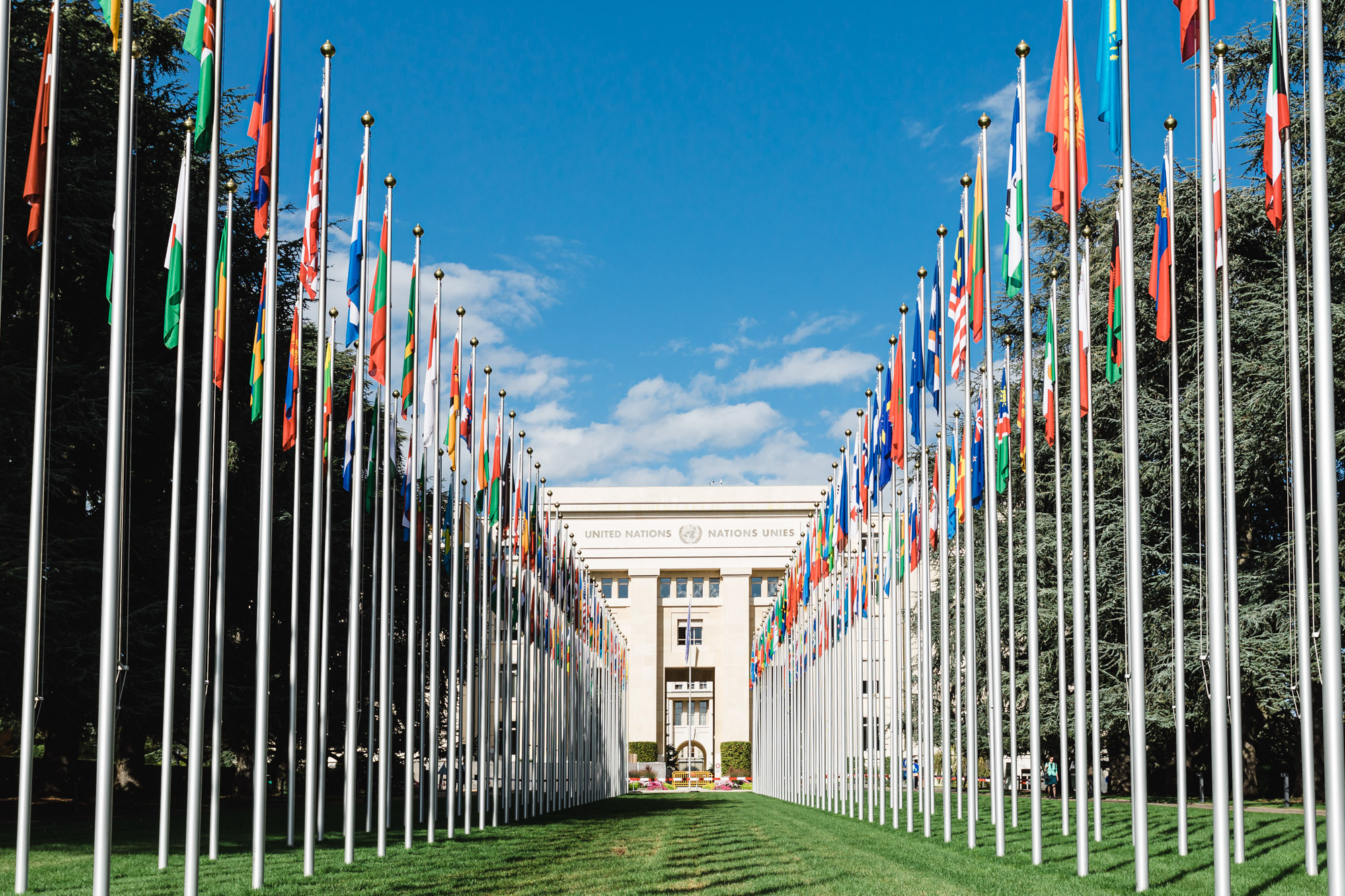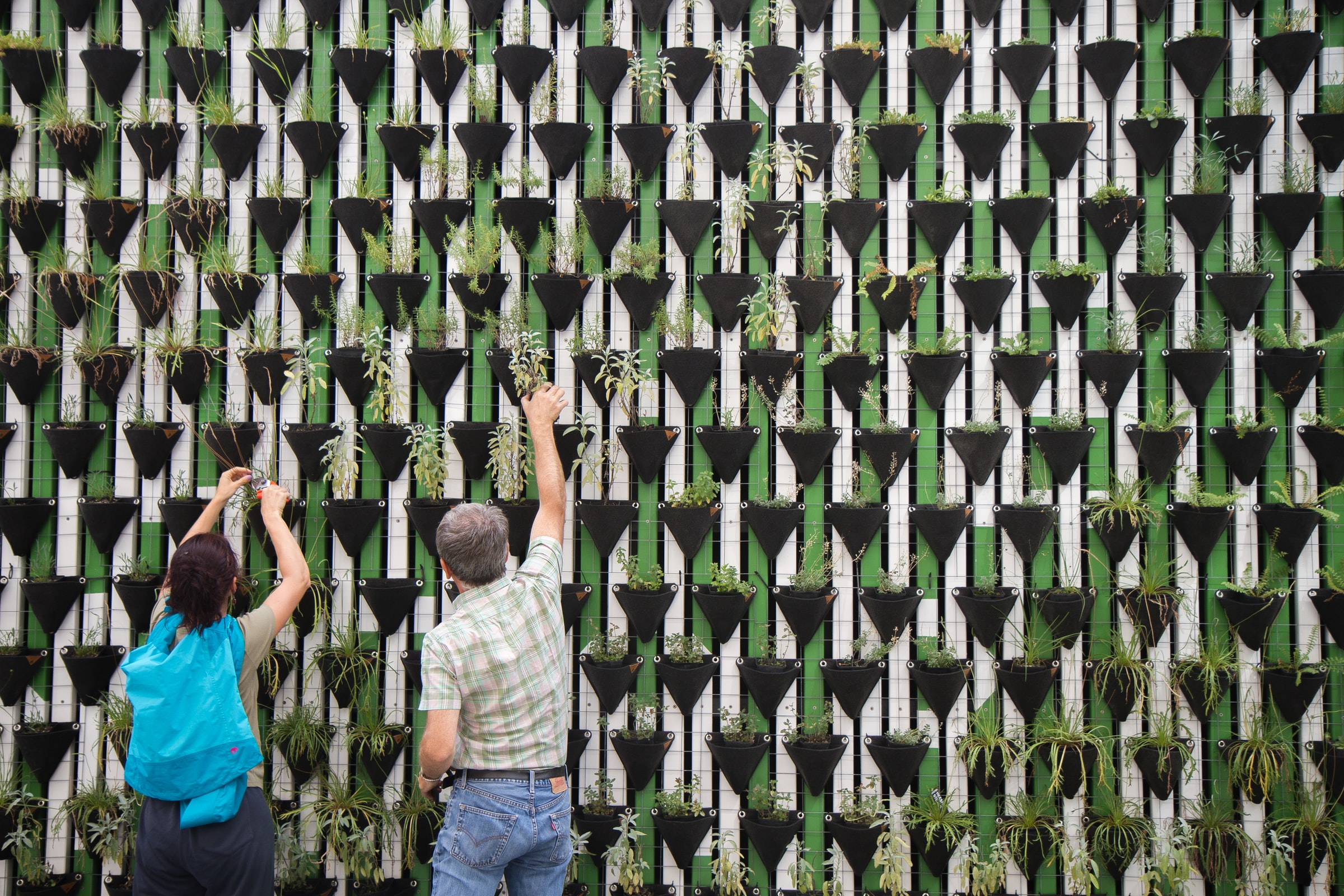The race to zero: action by cities, business and investors. Accelerating clean air solutions to deliver better health, climate and development outcomes. Role of supply chain emissions in decarbonization and compliance. Reversing car dependency. Community engagement and its important role in gaining public support for wind farms. Why climate data matters. The clothes we wear. Discover these and more online events of the week!
You can also subscribe to Climate Online’s newsletter to be reminded about weekly event updates by e-mail:

Biodiversity & Environment
15 – 24 March
“We Value Nature 10-Day Challenge Sessions” by We Value Nature, IUCN and World Business Council for Sustainable Development – WBCSD
There has never been a better time for businesses to assess their impacts and dependencies on nature. Through understanding and considering the risks and opportunities created by nature, businesses can make better decisions that benefit themselves, society and the planet as a whole. The We Value Nature 10-Day Challenge consists a series of practical sessions and small challenges spread across 10 days between 11 and 24th March. Full programme of the events is available here.
17 March, 3:00 – 4:30 CET
“Using ocean knowledge to achieve climate, energy and food security by 2050” by Stanford University
Chuck Greene’s Oceanography course at Cornell has grown to be the single highest enrollment class at the University, through a combination of research focus and practical approaches to global problems. His talk for us focuses on how some of the ocean’s tiniest creatures, single celled algae, hold promise to grow food, oil and nutrients and help solve looming problems facing the planet. As an oceanographer, Chuck’s research has focused on how the oceans function to support biodiversity and climate stability. Now he is leading a consortium of universities and entrepreneurs to develop technological pathways for addressing the interconnected global challenges of climate, energy, food, and water security.
17 March, 22:00 – 23:00 CET
“Hands Off or Hands On? Perspectives on Managing Nature in the U.S.” by Stanford University
Should we let wild nature run its course within a nature preserve, or should we intervene to guide it in directions we deem beneficial? There is a long and deeply rooted set of assumptions in the United States that the purpose of a national park or wilderness area is to preserve nature in a primeval state. And many of us continue to assume that this is what we are seeing. Yet appearances can be deceptive, and there is now a large body of research in ecology and anthropology that suggests that the distinction between natural and human-made is rarely so clear-cut. How might we rethink our sense of connection to these landscapes that are never exclusively “natural”?

Climate Policy & COP26
15 March, 14:00 – 15:00 CET
“The race to zero: action by cities, business and investors” by University of Oxford
Net zero targets are proliferating across the world, covering not only countries but also business, investors, cities, states and provinces, universities, and many others. But are these targets credible? And how can we ensurethey lead to change? A new report sheds light on both the scope and, critically, the quality of the groundswell of net zero targets globally.
15 March, 14:00 – 15:30 CET
“Nature for Adaptation: Mobilizing Climate Finance to Support Nature-Based Solutions” by World Resources Institute – WRI
Nature-based solutions offer a range of adaptation and resilience benefits and have been generating increased attention worldwide. But according to a new WRI working paper, public international funding that flows to nature-based solutions for adaptation is still relatively small. This event will explore findings from the new WRI paper and highlight recommendations to address key barriers and maximize opportunities to scale up funding for nature-based solutions. Speakers will discuss the current landscape of global climate finance related to nature-based solutions for adaptation, highlight successful efforts to fund and support these approaches and identify opportunities to strengthen this agenda in the lead-up to COP26 and beyond.
15 March, 17:30 – 19:00 CET
“Why Climate Data Matters” by Open Knowledge Switzerland
Data plays an important role in tackling climate change. But which data is relevant? How is the data collected, shared and used? And what are the dangers of collecting this data? Find out how data helps us to deal with climate change, what limits exist and which contributions you can make every day. During the interactive panel discussion three experts from the field talk about opportunities and threats of collecting and using data to tackle climate change. Further, they explore which climate data is not available and how this could be changed.
16 March, 15:00 – 17:00 CET
“Role of Supply Chain Emissions in Decarbonization and Compliance” by European Roundtable on Climate Change and Sustainable Transition – ERCST
During this meeting ERCST will present an outline which will summarise what ERCST would focus its work regarding the main issues and options for addressing supply chain emissions in climate policy, and identifies the questions it feels that need to be resolved. There will be two case study presentations from stakeholders on the potential of value chain emissions reductions, after which ERCST will moderate a discussion with other attendees.
16 March, 17:00 – 18:30 CET
“Nature-based solutions and water: navigating the transition to a climate-resilient future” by Stanford University
Under the impacts of climate change, natural capital can provide important adaptation benefits for communities. There is a growing demand for nature-based solutions to help communities navigate economic growth while building climate resilience. How can international commitments, finance mechanisms, and the private sector provide support? In this session, researchers and leaders from the public and private sector will showcase innovative research, policy, and finance approaches that are driving the shift to a climate-resilient future. A particular focus will be on the role of nature-based solutions for increasing water security as a critical mode of climate adaptation.
16 March, 23:00 – 17 March, 0:00 CET
“Decarbonization in the Real World” by Columbia University
Leaders around the world have set goals to dramatically cut carbon emissions to achieve net zero. The stakes are exceedingly high—the next decade will be crucial to stem catastrophic climate impacts associated with a 1.5 to 2 degree Centigrade rise in global climate. But how do we get there? Join Laurie Fitzmaurice and Peter Kelemen as they discuss the stakes, and the realities around the push to decarbonize our planet.
17 March, 14:30 – 16:00 CET
“Forest data for climate action: the importance of legal and institutional frameworks” by FAO
Forests, and forest monitoring in particular, are critical to ensuring that countries stay on target with emission reduction goals within the framework of the Paris Agreement. A robust National Forest Monitoring Systems (NFMS) can support the formulation, monitoring and adjustment of sub- and national forest-related policies, inform citizens and stakeholders and help track progress towards sustainable forest management and reducing emissions related to forest loss. The institutionalisation of NFMS is a crucial next step necessary to enhance country ownership and pave the way for more streamlined, sustainable and transparent use of forest data. The webinar will highlight how a legal basis, financial commitment and a permanent institutional framework are vital to ensuring efficient implementation and operation of an NFMS.
17 – 18 March
“Zero Carbon City International Forum” by ICLEI, IGES, UNFCCC, Japan Ministry of Environment
This forum aims to boost the work done by cities in their quest for net-zero emissions. Representatives from various cities and related organizations both in Japan and overseas will share advanced cases and discuss measures to strengthen city-to-city cooperation.
18 March, 14:30 – 16:30 CET
“Border Carbon Adjustment in the EU: ERCST Sectoral Report Launch” by European Roundtable on Climate Change and Sustainable Transition – ERCST
As part of the European Green Deal, implementation of a BCA is once again being considered as a measure to address competitiveness concerns within the EU. According to the roadmap for the European Green Deal, and European Council conclusions from July, a proposal for a BCA for “selected sectors” will be released in 2021 and should be introduced by the end of 2022. During this meeting the ERCST will present the Sectoral Report on sectoral deep dive with a special chapter that would synthesize the findings for individual sectors to a general CBAM Design.
19 March, 12:30 – 14:00 CET
“Climate Challenges and Adaptation Planning for Health” by The Energy and Resources Institute – TERI
The webinar is focused on climate change related health adaptation research. Exposure to various climate challenges leading to a variety of adverse health outcomes need attention by the health care system. In our forthcoming webinar, we would have a panel of experts from premier institutions across the globe, discussing their experience and opinions on climate change associated health. At the event, the researchers in the panel would elaborate different initiatives addressing climate challenges and the tools for adaptation planning for health.

Renewables & Energy Transition
16 March, 9:30 – 10:45 CET
“Hydrogen, sun, wind: Which ones can make the best contribution to Europe’s energy transformation?” by Euractiv
In electricity, wind and solar power are becoming the largest renewable sources. Hydrogen has become a central element of EU plans to reach net-zero emission by mid-century. Is it time to scale up technologies to reduce costs, allowing renewable energy sources such as green hydrogen to become widely used? How long might that take? And how can policymakers, especially with the upcoming review of the EU’s renewables and energy efficiency directives in June 2021, help accelerate the transition to newer forms of renewable energy?
16 March, 10:00 – 12:00 CET
“Sustainable financing for heating and cooling” by Celsius Initiative
There are more green financial instruments than ever before from major funders and investors supporting sustainable solutions. Still, it is very challenging for cities and heating and cooling providers to find adequate capital allowing them to finance projects deploying technologies that will enable a leap in the energy transition. This workshop launches a Heating and Cooling Initiative. Focusing on financing integrated energy systems, it will put a spotlight on identified challenges and give recommendations for how they can be resolved.
16 March, 11:00 – 12:00 CET
“The Road to Carbon Neutrality with Hydrogen Cogeneration” by COGEN Europe
Hydrogen has great potential of storing large amounts of energy over a longer period. With cogeneration, we can use that hydrogen in the most efficient and affordable way when we need electricity and heat. It is the smartest way to ensure that there is enough energy at any time, and it will be key in the roll out of more renewable electricity and electrified solutions. In this webinar, Hydrogen Europe will present the position of hydrogen cogeneration in the European Hydrogen Strategy. Two best practice projects of hydrogen CHPs and hydrogen fuel cells will give insights about the status quo of the technic.
16 March, 16:00 – 17:30 CET
“Reversing car dependency: summary and conclusions of the roundtable on zero car growth” by International Transport Forum
Join the online panel discussion between experts who will present conclusions of the report and discuss best policy practice for reversing the growth in car use. The webinar will focus on how governments can encourage citizens to use alternatives to private cars, reallocate road and parking space to sustainable modes, and improve liveability of our cities.
16 March, 17:00 – 18:00 CET
“Wind Power in Russia: Launch of a study on the wind power market” by World Wind Energy Association
Unlike many countries around the world, in which the pandemic has accelerated the energy transition and increased interest in renewable energy, the pandemic has not resulted in any positive long-term strategic implications for the energy sector in Russia. In this event, Tatiana Lanshina, author of the study, presents the main obstacles to the development of wind energy in Russia and how they can be overcome. Promising new market niches, such as the production of green hydrogen, will also be presented and their potential in Russia will be explored in more detail.
16 March, 20:00 – 21:30 CET
“Out with the Old, In with The New: How to Build a Net-Zero America While Ensuring A Just Transition” by Columbia University
In order to achieve net-zero emissions by 2050, the United States has to both build massive amounts of wind, solar, and batteries, and simultaneously retire and retrofit significant fossil fuel assets. Understanding the impacts of this transition on communities across the country will be key in ensuring just, equitable, and successful transition to zero-carbon energy resources. The Center on Global Energy Policy will host a webinar on how the United States can decarbonize its energy sector in a just and equitable manner. Key questions in this discussion will include: What will it take for the United States to build a net-zero emissions energy system? Why is a 100% carbon-free electricity system pivotal to this challenge? What role do technologies like wind, solar, batteries, nuclear, and carbon capture play in this future?
17 March, 9:30 – 11:00 CET
“Pyrolysis Hydrogen: truly neutral or negative, will it be competitive?” by Florence School of Regulation – FSR
Hydrogen can be produced also from the decomposition of methane. This process yields only solid carbon and no carbon dioxide. The produced carbon can be sold, improving the cost-efficiency of the operations. Particularly interesting could be the pyrolysis of biomethane. Can pyrolysis of gas play a substantial role in the energy transition? What is the state of the latest technological developments? What are GHG savings using pyrolysis? What are the cost estimations compared with competing technologies?
17 March, 12:00 – 13:30 CET
“Expert Workshop on Industry Energy Efficiency Benchmarking” by International Energy Agency – IEA
At this virtual workshop, policymakers and experts in the field of energy efficiency will discuss the benefits of industrial energy benchmarking to support energy efficiency improvements, focusing on concrete and impactful insights learned from global examples. The workshop will also launch the final report of the IEA’s work on industrial energy efficiency benchmarking. Initiated by Japan under its 2019 G20 presidency, the report illustrates how global benchmarking can support policymakers to identify major potential for improvements, set and track progress against appropriate targets and enable the sharing of best practices internationally. This workshop will dive deep into key findings in the cement and iron and steel sectors, the importance of data collection, and key policy actions to make it happen.
17 March, 15:00 – 18:00 CET
“Trends in Residential Electricity Use: Eco-feedback, Load Flexibility, & Grid Interaction” by Columbia University
Join the online conference to find out more about the following topics: (1) Comprehensive Electric Load Optimization – Emerging Strategies for a New BTO Subprogram; (2) Residential electricity conservation in response to auto-generated, multi-featured eco-feedback designed for large scale applications with utilities; (3) Effective communication strategies for motivating energy efficiency; (4) Using feedback in residential energy and microgrid retrofits (EcoBloc); (5) Load flexibility in the multi-family sector; (6) U.S. building energy efficiency and flexibility as an electric grid resource.
17 March, 16:00 – 17:30 CET
“Long-Term Energy Scenarios for Developing National Clean Energy Transition Plans in Latin America” by International Renewable Energy Agency – IRENA
The series of virtual seminars is a joint initiative of IRENA, United Nations Economic Commission for Latin America and Caribbean and GET.transform. It is part of the activities under IRENA’s Long-term Energy Scenarios Network, in the framework of UN ECLAC’s Technical Forum of Energy Planners. The series provides a platform to exchange knowledge, collect best practices and experiences from government energy planners in Latin America in the development and use of long-term energy scenarios to guide national energy plans in the clean energy transition. The seminars will explore the topic around the three main themes shown below.
18 March, 9:20 – 12:30 CET
“Energy Integration: From Policy to Action” by MAGNITUDE Project
Energy system integration is the pathway towards an effective, affordable and deep decarbonisation of the European economy. An integrated and transnational policy framework is needed to maximise the synergies between different energy sectors. This policy workshop will discuss the current status of energy system integration and what the future might have in store. The first session will focus on the high level aspects of system optimization and the implications for energy planning at European level. This will be followed by a look at what integration means for owners of energy infrastructure, and the barriers to collaboration between them.
18 March, 9:30 – 11:30 CET
“What role for clean hydrogen towards climate neutrality? The perspective of international think tanks” by Agora Energiewende
This roundtable will provide insights on climate-neutral strategies, pathways, and actions, including the possible role of green hydrogen from the point-of view of a network of leading energy transition think-tanks. Experts from Japan, South Korea, Germany, South Africa and Indonesia will present national roadmaps to decarbonize the energy sector, discuss the role of electrification and hydrogen towards a climate neutral future, as well as address the economic benefits and challenges of the transition in the context of the post-COVID recovery.
18 March, 10:00 – 10:45 CET
“2020 Key Trends and Data: Wind Power in the Asia Pacific” by Global Wind Energy Council – GWEC
Join us for a webinar to hear GWEC Market Intelligence experts from across Asia discuss the region’s continued wind power expansion in 2020, China’s formidable growth, and which other markets are emerging as wind power leaders in the region.
18 March, 13:00 – 14:30 CET
“Hydrogen and the role of synthetic fuels in power system flexibility” by International Energy Agency – IEA
As more countries implement long-term net-zero goals, reliant on high shares of renewables, it becomes evident that the need to address flexibility requirements in the weeks to season or annual horizons will become increasingly important. At higher shares of renewables, the production of synthetic fuels, such as hydrogen or green gas, is coming to the fore as a cost-competitive option to use surplus VRE output and serve the longer-term flexibility needs of the power system or other integrated sectors of energy demand. This senior expert webinar aims to highlight a few promising technological approaches and discuss near-term policy priorities to enable scalability.
18 March, 14:00 – 15:00 CET
“Renewables in Cities 2021 Global Status Report – Report Launch” by REN21
Cities have a unique role to play in accelerating the transition to a renewables-based energy system. Crisscrossed with transport systems and home to a variety of energy-intensive systems such as buildings and industry, cities are a prime playing field for renewable energy deployment and use. The Renewables in Cities 2021 Global Status Report maps efforts by various city actors, most notably municipal governments, to accelerate the global uptake of renewable energy, including urban policy landscapes, market and infrastructure developments, investment trends and opportunities for citizen participation, with the aim of demonstrating and inspiring city ambition on renewables.
18 March, 15:00 – 16:00 CET
“Community engagement and its important role in gaining public support for wind farms” by WindEurope
Building a wind farm can mean a big change for both urban and rural communities. However, it’s important to work with the local community from the start of the project to understand their concerns and to outline the benefits of having a wind farm in their vicinity. Building local support will help to ensure that Europe meets its climate goals. In online talk experts will discuss how community engagement affects public support for wind projects. How do wind energy developers involve communities during the planning and construction phases? And how do they continue to support the community throughout the lifetime of wind farm after it has been built? Join to gain an insight from both a local politician and representatives from the wind industry on this important subject.
19 March, 10:00 – 11:30 CET
“Energy transitions in Southeast Asia” by Agora Energiewende
Southeast Asia is one of the most vibrant and fastest growing economic regions in the world, with energy demand having increased more than 80 percent over the past two decades – with no signs of slowing down. Despite a strong endowment of renewable energy potential, the region remains heavily dependent on fossil resources. During this moderated roundtable experts from the region, including Indonesia, Philippines, Thailand and Vietnam, will present and discuss key challenges and barriers currently hampering energy transitions in Southeast Asia. They will also share ideas for how to shape them more socially, economically and environmentally friendly.
19 March, 15:00 – 16:00 CET
“Texas’ and Other Power Markets After the Big Freeze: Diagnosis and Prognosis” by International Association for Energy Economics – IAEE
Freezing in the dark – in Texas?!? That was supposed to be a risk that could happen someplace else, according to the old bumper stickers. But it happened, revealing both operational vulnerabilities and market outcomes that are being painfully assessed. As the multiple interconnected generation and system failures are better understood, who will pay to keep them from recurring the next time the Arctic sends down another unwelcome polar vortex? What electricity supply and financial risks can customers truly be expected to take? What signals can they see and react to in time to limit their costs and stabilize the market?

Sustainability & Circular Economy
17 March, 13:30 – 14:30 CET
“The Clothes We Wear” by Geneva Environment Network
Online screening of Deutsche Welle’s (DW) documentary on sustainable fashion. As the synopsis indicates, we live in an age of hyper-consumption, and nowhere is this more obvious than the fashion industry. “Fast fashion” is the buzzword these days. Driven by glossy advertising campaigns, many consumers are constantly buying new clothes.Two reporters go undercover to find out what’s really happening in the textile factories where many clothes destined for the European market are made. They discover the extent of the environmental devastation caused by the industry and how companies are making a profit from the fact that sustainability sells…
17 March, 14:30 – 16:00 CET
“Seizing The Urban Opportunity” by World Resources Institute – WRI
National governments today face a triple challenge: recovering successfully from the pandemic, addressing threats posed by climate change and advancing their longer-term development goals. Join a conversation between government representatives and experts in sustainable urban development on how to tackle this triple challenge and help cities build back better. This webinar will also serve as the launch of WRI’s new report “Seizing the Urban Opportunity” demonstrating through the lens of six of the world’s largest economies – China, India, Indonesia, Brazil, Mexico and South Africa – how national governments have a central role to play in unlocking the enormous potential of cities. The report, which will fuel much of the discussion, shows how putting cities front and centre in both COVID-19 recovery and longer-term climate action can create jobs, advance key development priorities, and accelerate the shift to net zero.
18 – 21 March
“The Future of Food” by The Kroger Zero Hunger | Zero Waste Foundation
In the next 30 years, our world will need to feed 25% more people globally; however, diminishing resources and a changing climate make this a difficult—albeit achievable—task. With the COVID-19 pandemic exposing inequities and inefficiencies across our food systems, there has never been a more important time to build a better Future of Food. The event will bring together a diverse group of experts, leaders, and visionaries challenging us to think about how our food and agricultural systems will need to adapt to new pressures, and what technologies and innovations will help us feed the world while combating climate change and conserving the earth’s precious natural resources.
18 March, 11:00 – 12:30 CET
“How to Measure the Climate and Circularity Impact of the Recovery Plans?” by Centre for European Policy Studies and European Environmental Bureau
In order to gain access to the funds available through the Recovery and Resilience Facility member states will need to prepare and submit national recovery and resilience plans. A number of member states have published their plans indicating their ambitions. What kind of approaches can be adopted by governments for classifying different budget lines and measuring the impact on climate change and circularity? How can potential trade-offs be measured and monitored?
18 March, 15:00 – 16:00 CET
“The sustainable enterprise: Collaborating across the ecosystem” by The Economist
The post-covid-19 global economic stimulus is being dubbed the first green recovery. Its implications are far-reaching. As the world scrambles to meet targets set by the Paris Agreement, industry finds itself more primed than ever to underpin this environmental imperative. Investor requirements, regulations and legislation, and employee priorities are all converging to make a clear business case for the sustainable enterprise. This offers companies a huge economic opportunity. But as they operationalize the transition to sustainability—transforming business models, growing new revenue streams and building customer loyalty—businesses face challenges alongside the opportunities…
18 March, 15:30 – 16:30 CET
“Launch of Clean Air Catalyst: Accelerating Clean Air Solutions to Deliver Better Health, Climate and Development Outcomes” by World Resources Institute – WRI
The Clean Air Catalyst is a new flagship program of USAID and a global consortium of organizations led by WRI and the Environmental Defense Fund (EDF). They are working with communities on the frontlines of this global crisis to better understand local pollution sources and identify solutions that lead to sustained progress on cleaner, healthier air. The program will begin with pilots in three cities: Addis Ababa, Ethiopia; Indore, India; and Jakarta, Indonesia.
18 March, 16:00 – 17:00 CET
“Circular Electronics Partnership: from Roadmap to Action” by World Business Council for Sustainable Development – WBCSD
Over the past year, seven organizations and more than 20 companies from the electronics value chain have convened to align on a Vision and Roadmap for Circular Electronics. For the first time, both the Vision and Roadmap will be presented externally, through an interactive and highly engaging event format. Further, the Circular Electronics Partnership will begin its next phase as an independent initiative focused on implementation, coordinated action and monitoring progress.
also coming up in March …

